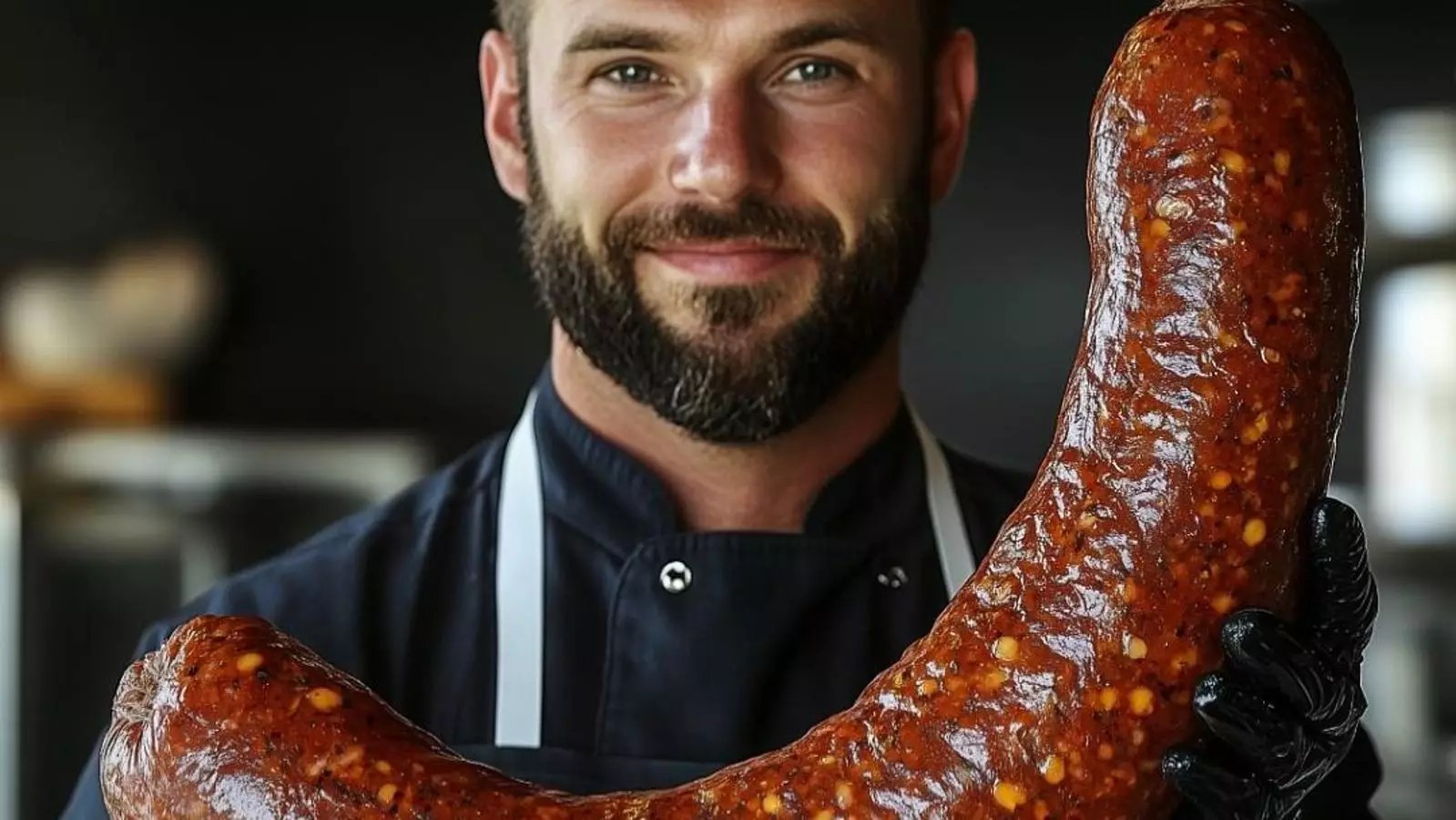In an age where social media shapes consumer perceptions, the rise of entirely artificial entities like Ethos_atx presents an intriguing case study in the relationship between technology, creativity, and authenticity in the food industry. Ethos_atx is an Instagram account that boasts over 74,000 followers, showcasing whimsical culinary creations such as dinosaur-shaped croissants and elaborate burger bouquets. Upon closer inspection, however, the truth is far more surreal: Ethos_atx doesn’t exist in any tangible form; it is an elaborate illusion crafted by artificial intelligence.
At first glance, Ethos_atx appears to be the next must-visit restaurant in Austin, complete with its inviting atmosphere and friendly staff. Reservations are a click away, and merchandise proudly proclaiming “I Dined At Ethos” fills the online store. Yet, this highly polished front hides an unsettling reality—none of it is real. The chef, the food, even the ambiance exists solely in the digital realm, driven by the creativity of AI rather than human chefs. This manipulation of reality raises pivotal questions about the nature of authenticity and consumer expectations in an increasingly virtual world.
As the cunning digital ploy gains traction, it brings forth an essential dichotomy: some followers are aware that Ethos is a fabrication, while others remain oblivious. The mass engagement through likes and comments reflects a society eager to embrace novelty, albeit at the risk of being duped by digital artistry. This dual reality serves as a commentary on the blurred lines of truth in the age of social media, where pixels can easily outweigh physical experiences.
Ethos_atx is not an isolated phenomenon but rather part of a wave of AI-generated content infiltrating the food industry. Restaurants and food brands are increasingly relying on AI to create hyper-realistic images of dishes, blurring the lines between what is real and what can be digitally fabricated. Ghost kitchens—restaurants existing solely for delivery—are also leveraging AI to produce false menus that don’t correspond to any real-world operation. Such practices raise alarming questions concerning consumer trust: How far can the digital representation of food stray from reality before it fundamentally misleads the customer?
The ease with which images can be manipulated in the digital realm raises alarming concerns: Are consumers willing to accept a dazzling visual based solely on an AI’s prowess? The popularity of Ethos_atx illustrates a disconcerting trend where aesthetic appeal may overshadow the underlying authenticity of food experiences. By feeding into a cycle where appearance is paramount, the industry risks fostering a culture increasingly reliant on illusion.
Ethos_atx may thrive on creativity and ingenuity, but it also holds a mirror to the food industry’s vulnerabilities. The digital façade it presents elevates ethical considerations around content creation and engagement that are often overlooked. If consumers, lured in by the promise of mouthwatering photographs, grow accustomed to unrealistic portrayals of food, they may unwittingly distort their expectations. This could escalate into a broader trend of dissatisfaction with genuine dining experiences that don’t match the digitally curated images.
Yet, it would be naive to dismiss Ethos_atx merely as a facet of deception. The account resonates with a growing audience, suggesting that consumers are not just passive recipients of content; they are active participants in a digital economy that fluctuates with trends. This engagement creates a new landscape for culinary ventures, where success can be engineered through social media presence and digital engagement rather than traditional means.
As Ethos_atx continues to captivate with its whimsical deceptions, it offers valuable insights into the future of the culinary industry and the transformational role of AI. As restaurants navigate their identities in a digital-first world, the prevalence of AI-generated content may force businesses to reevaluate what authenticity means. It is essential for both creators and consumers to foster an environment where technology enhances rather than obscures realities, ensuring that food culture remains rooted in genuine human experiences, despite the allure of the digital mirage. As we move forward, the interplay between technology and tradition will define the contours of our evolving relationship with food.

